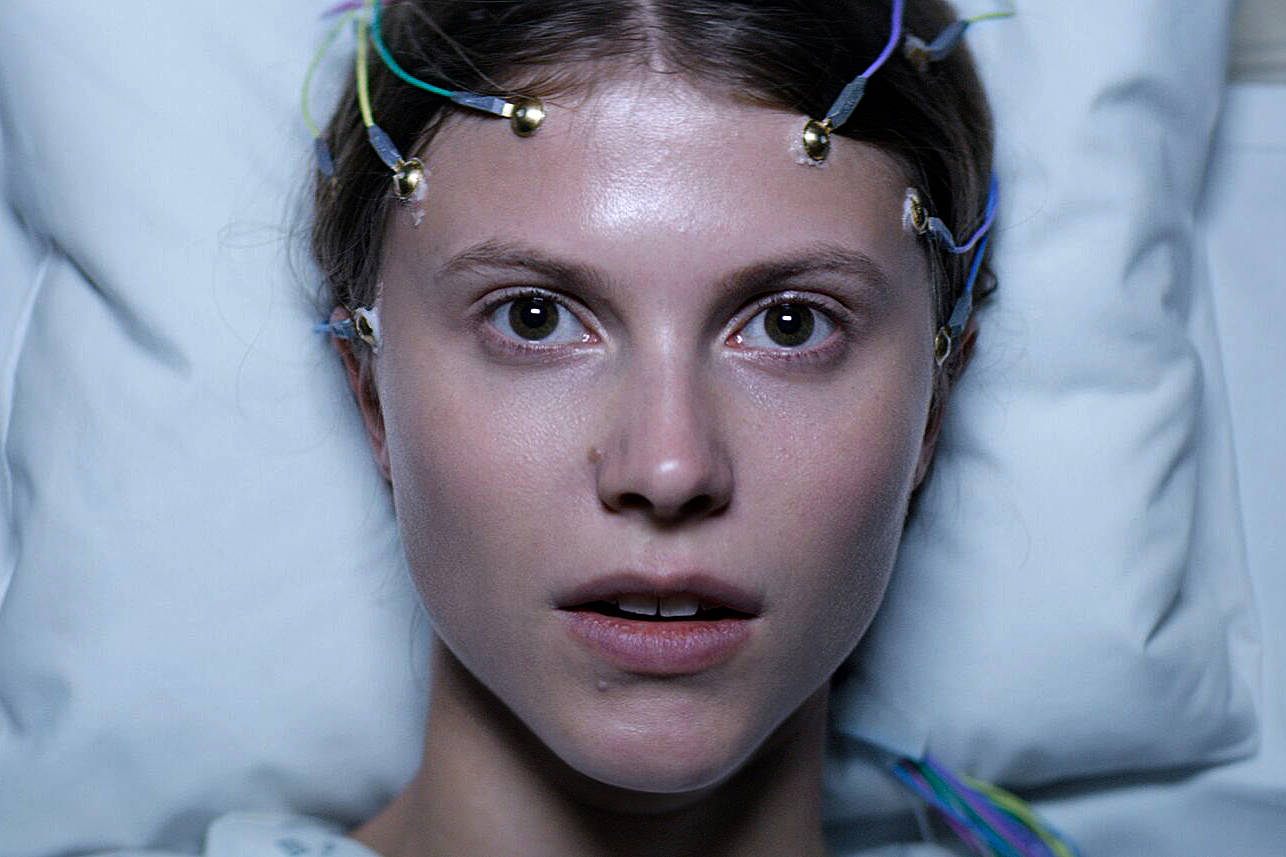There’s a fine line between paying homage to classic horror-movie conventions and outright theft. Let’s take a checklist to Joachim Trier’s Thelma, a kind of Carrie re-imagined through a Scandinavian lens. Bird flying fatally into a window? Check. Dream about a snake slithering through the grass? Check. Spooky old photographs of weird people? You bet. These devices can work like crazy (I’m a sucker for the creepy-old-photo routine), but the chilly efficiency with which Trier deploys them in Thelma feels a little by-the-numbers. This movie—Norway’s official submission in the foreign-language Oscar sweepstakes—is expertly made, but only intermittently moving.
The title character is a teenager (played by Eilie Harboe), off to college in Oslo and away from home for the first time. A lonely soul, she experiences seizures that can’t be medically explained. Also, strange things happen around her. A classmate (the soulful Kaya Wilkins, aka singer Okay Kaya), one of the few people to strike up a friendship with Thelma, discovers this to her peril. Even before the dead birds, we suspect something is amiss because we’ve noticed how closely Thelma’s parents (Henrik Rafaelson and Ellen Dorrit Petersen) control their daughter’s life. One of the subliminal horrors of this movie—and the film is really best at subliminal horrors—is the way the internet and social media allow parents to track a child’s behavior through the day.
Thelma, like Stephen King’s Carrie, has some kind of power, and it appears to be in the same medical family as that Twilight Zone episode about the kid who could wish people into the cornfield. But if Thelma has a direct ancestor, it’s The Exorcist, which also dealt in the metallic terror of hospitals and medical tests, as well as the uncanny sense that something other than you is in charge of your own body. Few things are more unsettling in this movie than the shiny instruments of science. (By the way: Speaking as someone who hates strobe-light effects, be advised that these are on ample display.)
Many horror pictures are about the confusion that attends the passage into adulthood, and Thelma puts itself squarely in this tradition. One interesting wrinkle is that Trier, whose previous films include Louder than Bombs and Oslo, October 31st, doesn’t do a whole lot to generate sympathy for Thelma. Played in deadpan fashion by Harboe, the character comes across as that annoying classmate you invite along for a hang-out who ends up alienating everybody by complaining about the music. In a climate where movie protagonists are supposed to be unfailingly likable, this is a bold approach, and it means we have to work a little to see just how hard Thelma’s life must be. And it must be hard. Trier and his usual co-screenwriter Eskil Vogt set us up for a final section that allows Thelma to realize her potential, as it were—although those words don’t seem quite adequate to the sinister send-off we have in store here.
This film is cold and calculated, but some of its scenes are potent. There’s a grand set-piece where Thelma feels erotic glimmerings while attending a dance performance, and her panic causes the concert hall’s huge light fixture to sway above the unsuspecting audience’s head. But if Trier sometimes seems to be showing off his ability to direct a big Hollywood blockbuster should anybody ask—and he clearly has the ability—Thelma is most effective in tiny moments. When the teetotaler Thelma gets tipsy at a party, Trier lays on a dream sequence (remember that snake in the grass? It comes back). What stays with you from the scene is not the nightmare imagery, but the aftermath, as Thelma realizes she has been casually humiliated by the other people at the party. She might be dangerous, with her mysterious powers, but regular people can be just as devastating with their down-to-earth cruelties. You’re going to sympathize with Thelma despite herself. Opens Friday Dec. 1 at Seattle 10 theater, not rated
film@seattleweekly.com






